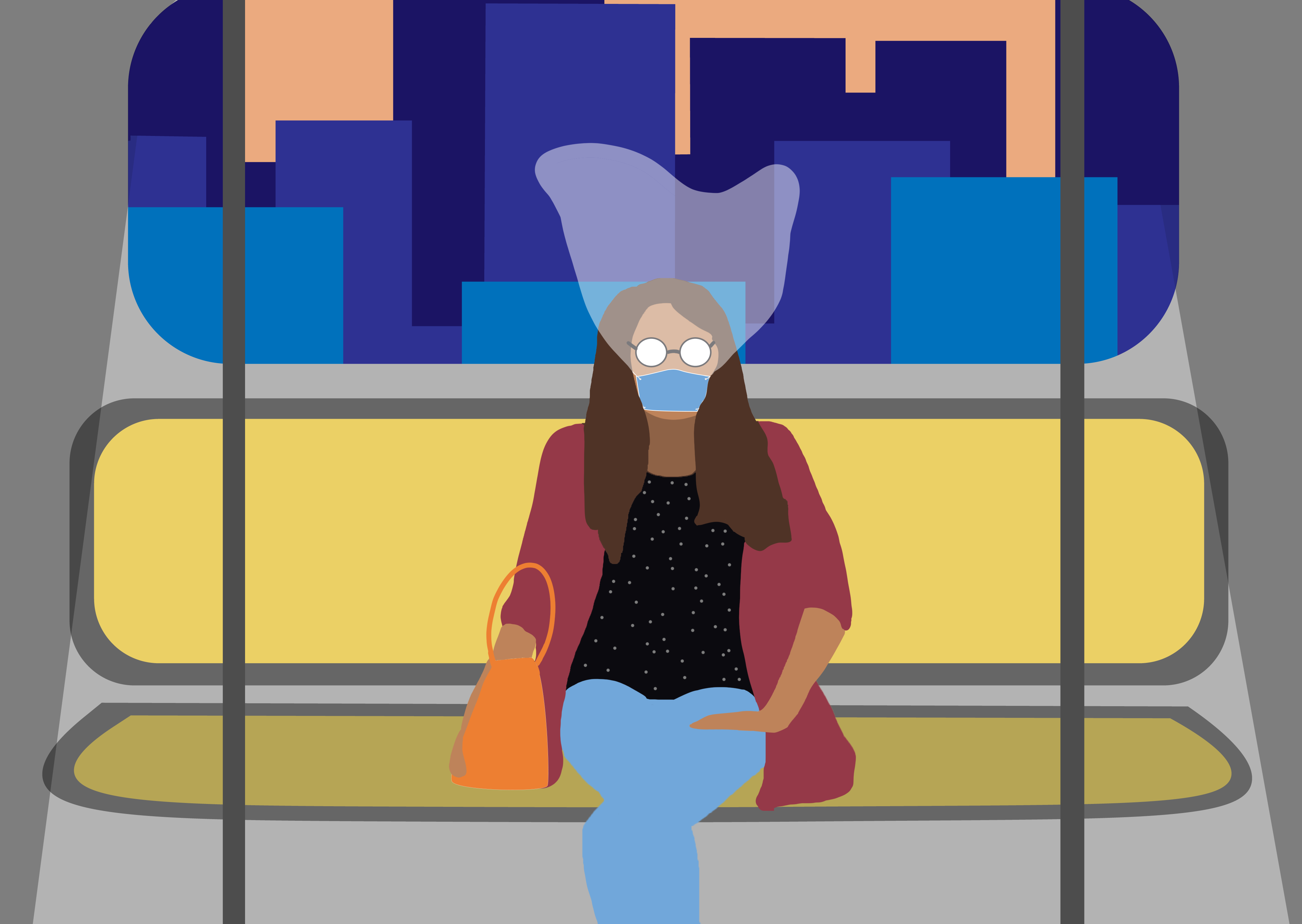One of the less life-threatening problems brought by the pandemic is Foggy Glasses Syndrome. Illustration by Nova Blanco-Rico
By Brenda Fernanda Verano, News Editor
You would think wearing glasses would improve your vision right?
I mean ask the 164 million Americans, like myself, who are lucky enough to be visually impaired and were prescribed glasses at some point in their life to help us get from point A to point B.
Or help us to make out the face of the stranger who is waving at us from across the street.
Or to figure out the fine print on all those credit card statements we’ll never be able to pay.
Well, think again, because the absolute worst part of wearing glasses is having to wear glasses, with a mask, during a pandemic.
Face mask + glasses = an unsuitable combination.
If you have read this far, it’s probably because you are also a victim of the foggy glasses, when your glasses stop being necessary lenses that improve your eyesight and turn into proficient moisture collectors.
And with every breath you breathe out, thicker, wider and bigger gas particles accumulate and disperse in the form of air, which slowly fills up all the space between your eyes and the eyewear until you could no longer see. A daily reality that up until a couple of months ago, most of us did not know it would be as terribly annoying as it has turned out to be.
So I ask you, in what exact moment did you realize that having and wearing your glasses were as annoying as all the times when you forgot your glasses at home?
If I had documented the day when this annoyance pushed me over the edge, it would’ve read something like this:
Dear Covid Diary,
Today I met the love of my life.
On a cloudy, cold morning, in the month dedicated to love (Valentine’s Day), a young metalhead, giving off Rich Hardbeck from Skins vibes, sat across from me on my 15-minute train ride.
During the commute, I decided to take a few sips from my champurrado. I came to the conclusion that taking a few quick glances at Mr. Metalhead could be disguised/less noticeable if I held my cup close enough to my face, so that he wouldn’t notice I was staring at him, but almost immediately I realized it was a bad idea. As I pulled my face mask up and down to be able to take the first couple of sips from my drink, small fog inside my glasses followed. Even after I stopped sipping my drink, my mouth stayed warm, and whenever I exhaled, the fog would just grow bigger until I was no longer able to take a peek at the cute boy sitting across from me. But that’s not even the worst part. Mr. Metalhead then asked me a question before getting off.
“Hi, excuse me, if I want to transfer to the red line is that located upstairs or downstairs?” he asked. Me, with a champurrado in one hand, holding my backpack with the other hand, and with foggy glasses blocking my eyesight, I responded with directions. The door opened, he hopped off and I didn’t even get the chance to take out my glasses. All he saw was a girl with foggy glasses.
It sucks but I also don’t want to die.
Not wearing a mask just so my glasses do not get foggy has never been an option for me. Because at the end of the day, even if I had to choose between walking around all day with foggy glasses or not wearing a mask but getting exposed to COVID-19, I would pick the hazy glasses time and time again.
Foggy glasses or not, wearing a mask saves my life. My glasses prevent me from tripping off the sidewalk and my mask protects me from the deadliest virus in the last decade, the Coronavirus, which has affected more than 3.4 million people in California.
Therefore, stepping foot outside without a face mask, as I reside in the state with the most deaths in the country, has never crossed my mind. In fact, I recently started double-masking, as recently recommended by the Centers for Disease Control and Prevention (CDC).
Sometimes that means double the fog, but I remind myself how lucky and privileged I am if my biggest worry is the fog that momentarily robs me of my sight during a pandemic.
The fix for my big worry is merely tightening the gap between my face mask and nose so that there is little to no space for those air particles to ventilate upward and turn into a fog.
I can handle reducing my time outside and avoiding foggy glasses because when I am home in my room, my glasses and I are best friends. They help me write stories and do homework without squinting, while I keep them fulfilling their reason for existence.
In the sanctity of my room, no face mask can come between us.

